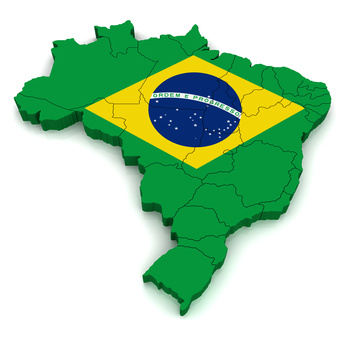This page contains automatically translated content.
Lecture Series "Brazil. Land of the Future or of the Past?"

In 1941, while in exile in Brazil, Stefan Zweig wrote the book "Brazil. A Land of the Future. The title of the book was considered an epithet for the country in Brazil for decades. This was justified because, despite massive problems, the population always radiated hope - that is, future - to foreign visitors. Brazilians often added the melancholy-ironic phrase ... a future we will never reach.
Then the improbable happened. With the election of leftist candidate Luiz Inácio Lula da Silva as president, who took office on Jan. 1, 2003, Brazil had achieved its future. The first years of his government were marked by a broad social awakening and shaping of the future. Disillusionment set in. Brazil is currently ruled by a right-wing president. There is little sign of awakening and hope. His re-election would make Brazil a country of the past. But what could be the future?
All event dates:
(Thurs. 6 - 8 p.m., lecture hall 4, Arnold-Bode-Straße 12)
Thu. 12.5 Christian Russau: With whom are you still in solidarity?
The once so strong social movement of Brazil, which was attractive and fascinating for many politically engaged people, is today under enormous pressure, many politicians who were trusted were involved in corruptionscandals. What still fascinates and justifies committed solidarity today, and with whom in general?
Christian Russau visited Brazil for the first time in 1989 as part of his studies. There he learned to appreciate the country and its people. Since then he has been involved in various solidarity networks with Brazil. He works as a freelance journalist and campaigner.
Thu. 19.5 Does the Cerrado have a future? Book presentation
The Brazilian Cerrado is the most species-rich savannah on earth. In just a few decades, half of the Cerrado has been destroyed. Its traditional peoples and communities are threatened. The book Cerrado aims to launch a broad scientific, social, and political debate about this important but overlooked region of the world.
Thurs. 2.6 Clarita Müller-Plantenberg: What do the indigenous people still want?
Indigenous peoples in Brazil have had successes and at the same time remain threatened to this day. From the beginning of the conquest, their numbers dropped from about five million to less than 200,000 in the 1960s. Direct and indirect genocides against these oldest inhabitants of what is now Brazil were stopped in the years that followed. Many of the approximately 300 indigenous peoples experienced a demographic recovery. The last census in 2010 counted just under 900,000. In addition, especially in Amazonia, many indigenous territories have been designated, which today cover approximately one million square kilometers. Currently, however, the government is attempting, through various legislative initiatives, to allow economic exploitation and thus intrusion into the territories once again.
In this difficult historical phase, Clarita Müller-Plantenberg will try to answer the question of what the indigenous people still want and what their future prospects might be. The sociology professor taught at the University of Kassel from 1981 to 2009. One of her main areas of research was the Amazon region and the indigenous peoples of Brazil. She is still a committed defender of indigenous rights and returns to her old place of work with this lecture.
Thurs. 9.6 Thomas Fatheuer: Is there a political future?
Brazil faces a fateful election in October. The re-election of the current president would be a disaster and the way to further destruction of the environment and democracy. Can there be a hopeful future with other political constellations in a confusing party landscape? What do the political alternatives look like, what perspectives do they stand for? Dr. Thomas Fatheuer will explore these questions. He has lived in Brazil for more than 20 years, mostly in development cooperation: for the DED in Belém, for the GtZ at the Ministry of Environment in Brasília and most recently for seven years for the Heinrich Böll Foundation in Rio de Janeiro. He is one of the most profound German-language experts on the Brazilian political scene. He currently writes regular reports on the current election campaign.
Thurs. 30.6. Dieter Gawora: Brazil Land of the Future or of the Past?
An attempt to answer a question.
Registration:
Participation is available for a maximum of 100 people in attendance. To participate via Zoom, please register with Ms. Klein: p.klein[at]uni-kassel[dot]de.
Contact
Dr. Dieter Gawora
FB 05, Gesellschaftswissenschaften
Didaktik der politischen Bildung, Soziologie der Entwicklungsländer
Nora-Platiel-Str.5
D-34109 Kassel
Phone: (0561 )804 - 3385
e-mail: gawora[at]uni-kassel[dot]de